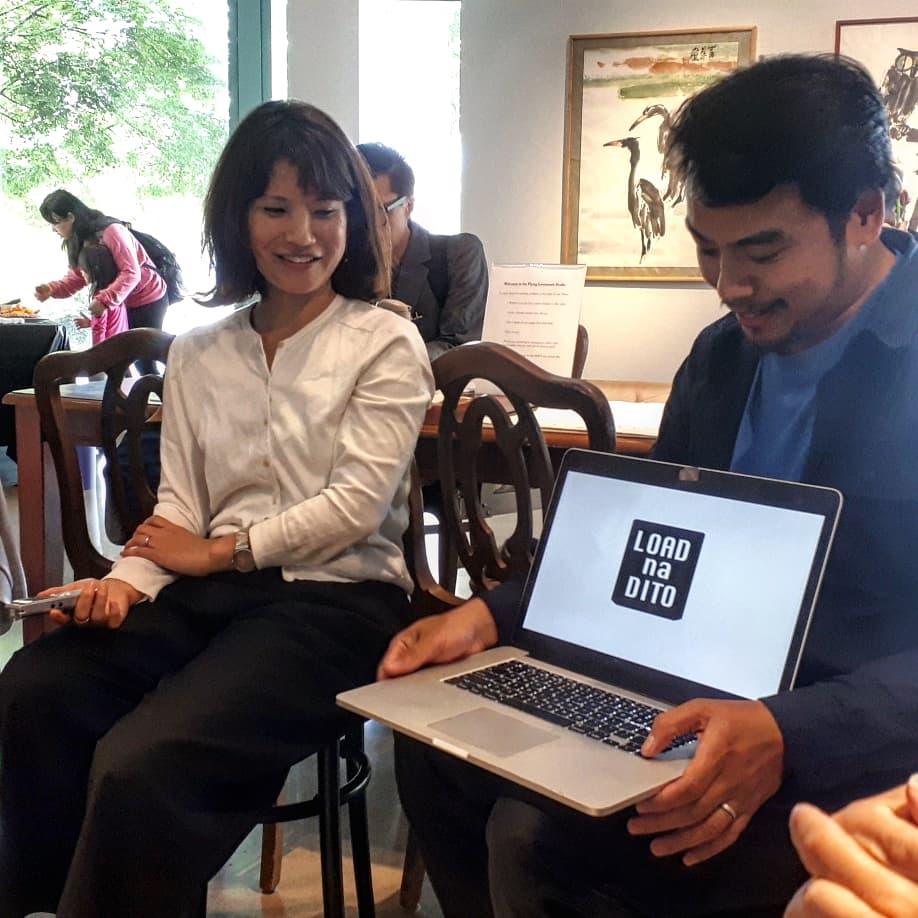This interview is conceived as a follow up to a residency undertaken in May 2019, when Load Na Dito (Mayumi Hirano and Mark Salvatus) visited Vancouver, together with their young son Yoji. The Pacific Crossings project is conceived to have long term growth, with relationships that unfold across time as well as distance. The hope is to build on mutual relationships, forms and modes of making, and common goals. Communicating together now offers a snapshot of how Load Na Dito (Mark and Mayumi and Yoji) are faring during the epidemic and subsequent lockdown of Manila, and through them reach into a community of other contemporary artists.
For context to readers less familiar with the Philippines, we begin with the note that the measures being implemented around the world to combat the spread of the COVID-19 disease have had severe impacts on daily life as it has been known in Metro Manila. In particular, individual mobility has been limited in the extreme by household ECQ (enhanced community quarantine) lockdown, which at the time of writing has been downgraded to general community quarantine, affecting the ability to move freely and gather outside of a home, as a community health measure. These strict protocols in the National Capital Region and other regional areas have had the necessary effect of slowing the spread of disease, yet the government response methods and tactics in the Philippines has instilled fear among many of a return to Martial Law. Tactics related to the management of health over the past four months have predominantly been shaped through the crude and hasty implementation of armed checkpoints limiting freedom of movement and relying heavily on punitive measures, police and military presence. Immediate enforcement and incarceration by aggressive police of this imposed quarantine and curfew, and the corresponding lack of meaningful resources directed toward the wellness of Filipino citizens leaves many in a precarious state without access to healthcare, public education, or social support, nor the means to provide for their own livelihoods. These limits to freedom correspond to a rise in human rights abuses that has become normalized in a country undertaking a perpetual war on the poor. Since the election of President Rodrigiuo Duterte in 2016, a so-called war on drugs has amounted to regular assassinations of vulnerable citizens, predominantly the poor, undertaken by police on behalf of the state. Elevated levels of state-sanctioned violence against drug users has, by some counts, resulted in the loss of lives in numbers reported between 16,000 and 27,000 at the time of writing. Voices of opposition are subject to coordinated smear campaigns, and journalistic freedoms are now under direct threat, as the government rushes to quell political adversaries, human rights advocates, or any coordinated questioning of the state. As quarantine measures now begin to be relaxed, this interview is conducted amid a community bearing the weight of state intimidation, enforced control and a destructive lack of infrastructure, including even basic transportation, to support the average Filipino.
LnD: We do want to comment on this introduction!: This context is very important for the readers and to make an overview of what is happening in the Philippines over the past months and PRD in power, we are unsure of the flow of the interview that can address the situation properly and safely, especially now that the anti-terror law that was recently passed. We will be careful throughout in considering what is written and said. It’s a different reality here now.

